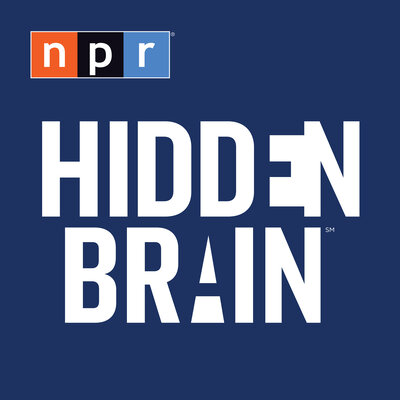This turned out to be Linguistics Week in the CogSciLibrarian's commute.
First up, Seth Lerer on WHYY's
Radio Times (May 11, 2007; listen via RealAudio or find on iTunes). Lerer talked about his new book
Inventing English: A Portable History of The Language.
Lerer read part of the first poem written in English somewhere in the 6th century. He talked about the evolution of language from that poem through Old English, Middle English, the Great Vowel Shift, Shakespeare, Samuel Johnson's dictionary, Twain, and up to & including email & rap. I felt like I was sitting in Mark Feinstein's History of Language class again!
Things I liked from his talk:
* Shakespeare invented ~6,000 words & phrases, including assassination (which comes from "hashish"!) and "be all and end all." (
list from wikipedia)
* Lerer's favorite diphthong is "i," "might," "thine," which to my untrained ear, sounds like oeil in French, which he suggests is the origin of "pirate English." Ahoy Matey!
* Johnson's definition of "oats:" a food given to horses in England and humans in Scotland.
* Mark Twain first fictionalized the term "dude" and "hello" (
A Connecticut Yankee in King Arthur's Court), and the term became popular in the 1880s.
* He's a great speaker who's incredibly enthusiastic about his topic.
More about Professor Lerer. Read his new book, OR borrow his "Teaching Company" lectures on the History of the English Language from the library.And then I listened to a March 2006 lecture by Steven Pinker on CBC's
Big Ideas lecture series
(mp3 available at amigofish). He talked about regular & irregular verbs and nouns, and hypothesized about how and where such grammatical rules are stored in the brain.
I most liked hearing about the irregular forms of verbs and nouns. For instance, the 10 most popular verbs (number of occurrences in a million words of speech) in English are all irregular, such as
be, have, do, say, make, go, take, come, see, and get. There is a 788-way tie for those words that are used only once in a million words -- and Pinker shows that the first 10 alphabetically are regular & can be "pasted" by adding -ed at the end of the verb. These include abhor, abrogate, acclimatize, and adulturate.
I also liked hearing about making compound nouns plural, including that the hockey team is called the Maple Leafs rather than the Maple Leaves and a group of more than one lowlife is called lowlifes. "It happens whenever ... the meaning of the noun ... is not simply the meaning of the little noun inside it" -- compare "workman" with "still life" to see the difference here.
Read a review of Pinker's book Loading "Words and Rules : the Ingredients of Language" in the article Washington Sleeped Herefrom the November 29, 1999 New York Times.
I'm not a linguist, and I know some of this is controversial, but I enjoy thinking about words and how they work. If you do, check out the podcasts or some of the books cited here.
 I'm so glad to report that there is a good cognitive science podcast in the U.S.: Hidden Brain, hosted by NPR reporter Shankar Vedantam and available on NPR and wherever podcasts can be found.
I'm so glad to report that there is a good cognitive science podcast in the U.S.: Hidden Brain, hosted by NPR reporter Shankar Vedantam and available on NPR and wherever podcasts can be found.



